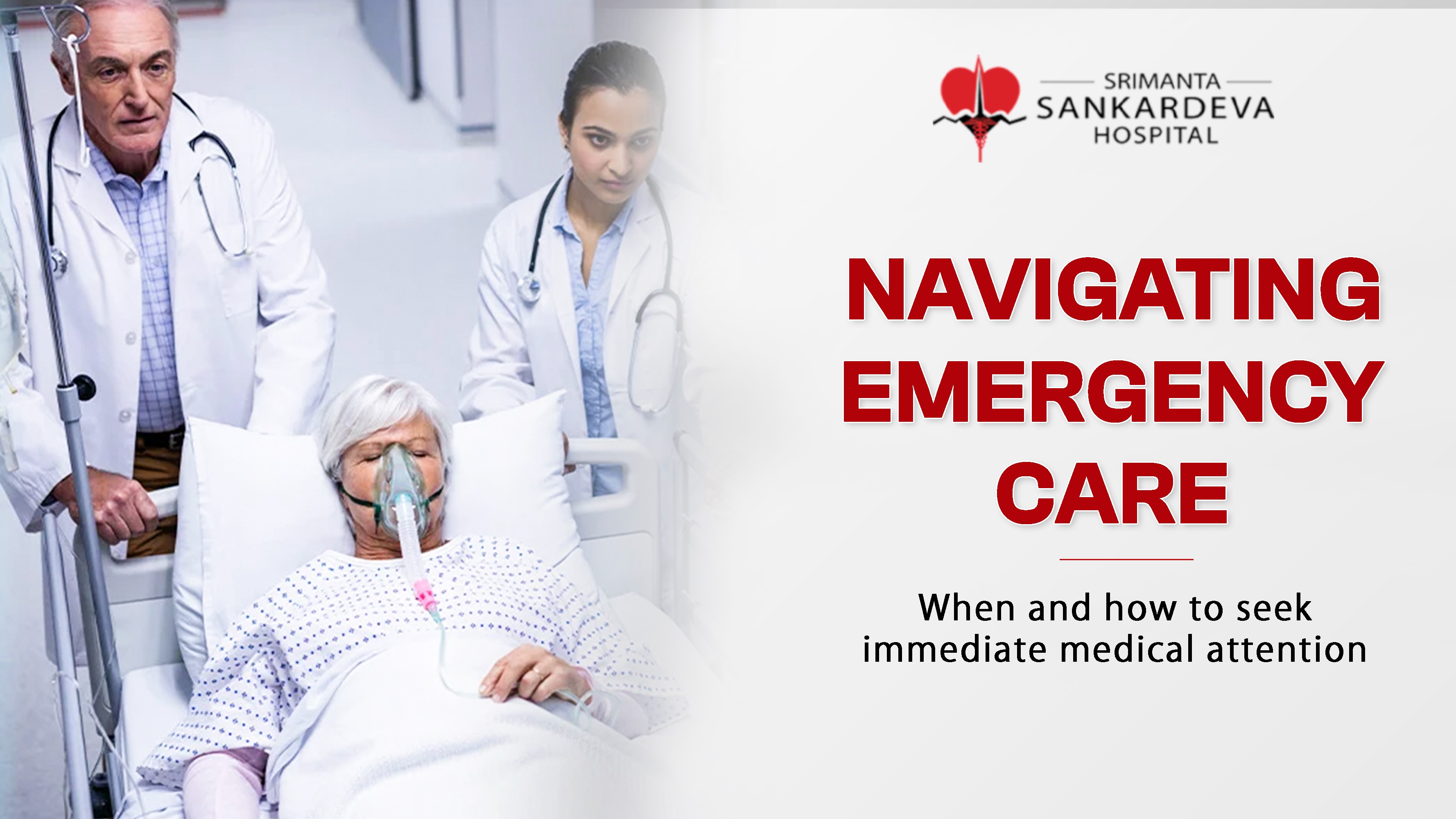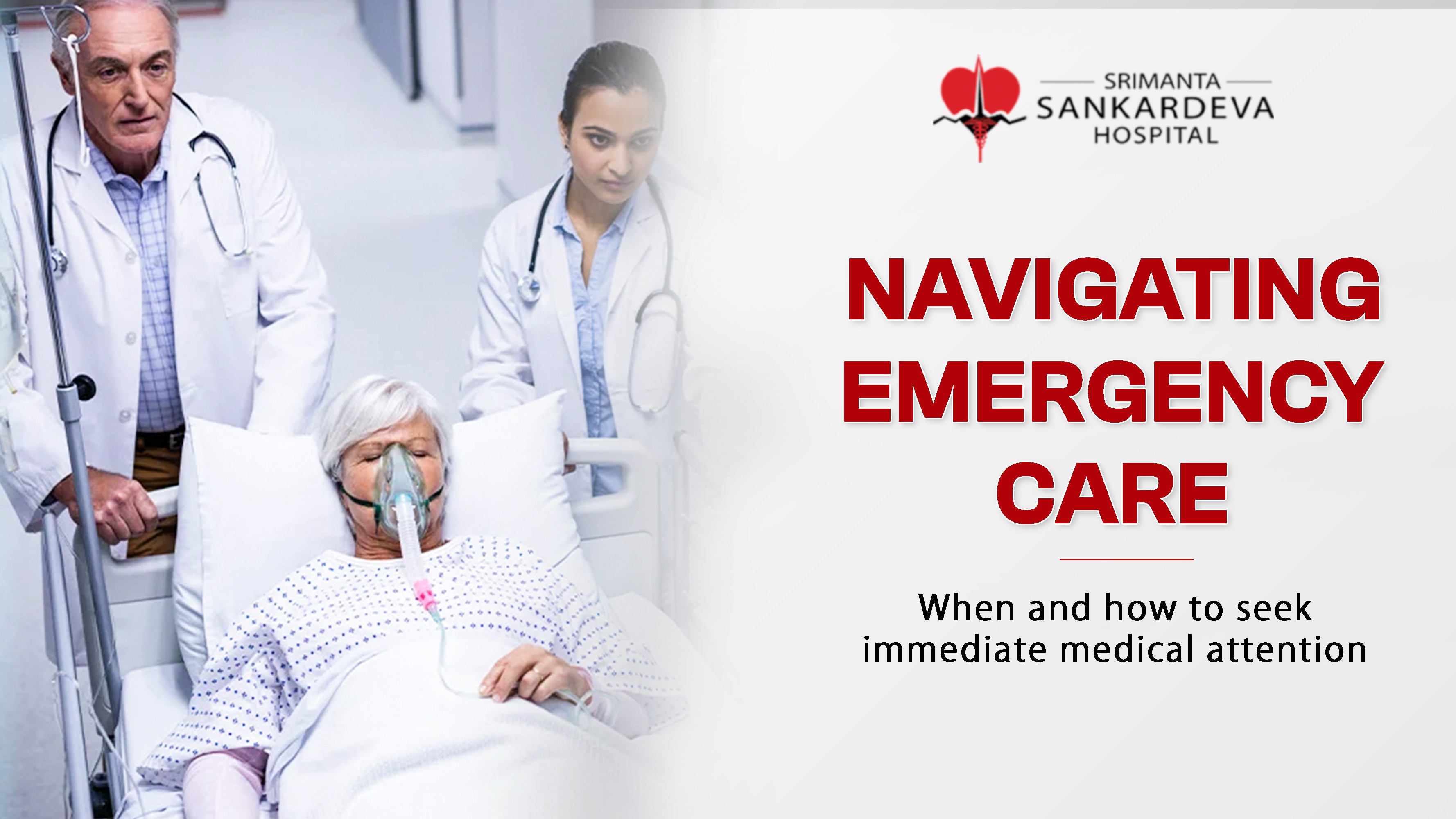Medical emergencies can happen to anyone, anytime. Knowing when to visit the emergency room (ER) and what to do during such a situation can save lives. At Sankardev Hospital, our Emergency Department is equipped to handle critical cases 24x7. This blog will help you understand when to seek emergency medical attention and how to act quickly and wisely.
Why Emergency Care Matters
Emergency medical services are designed to provide rapid and specialized treatment for life-threatening conditions. Unlike regular doctor visits, emergency care is meant for situations where waiting can worsen your health or lead to permanent damage.
Common Signs That Require Immediate Medical Attention
- For Adults and Older Individuals
- Chest pain or pressure, especially if it spreads to arms or jaw
- Difficulty breathing or shortness of breath
- Sudden confusion, weakness, or inability to speak (possible stroke)
- Severe abdominal pain
- Sudden and severe headaches
- Heavy bleeding or injuries from accidents
- Unconsciousness or fainting
- High fever with seizures
-
For Children
- Difficulty breathing or bluish skin
- Uncontrolled bleeding
- Seizures or loss of consciousness
- Severe allergic reactions (swelling, breathing issues)
- High fever with rashes
- Unusual drowsiness or irritability
If you or a loved one is experiencing any of these symptoms, do not delay—visit the ER immediately.
What to Do in a Medical Emergency
-
Stay Calm and Act Fast
Try to stay calm and reassure the patient. If possible, gather the following:
- ID or health insurance card
- List of current medications
- Any known allergies
-
Call for Help or Visit the Hospital
If the situation is life-threatening, call an ambulance. If stable, come directly to the Emergency Department at Sankardev Hospital.
Emergency vs. Urgent Care – Know the Difference
Many people confuse urgent care with emergency care. Here's a quick guide:
| Urgent Care | Emergency Care |
| Minor cuts, sprains, mild infections | Heart attacks, strokes, major trauma |
| Coughs, cold, mild fever | Breathing problems, unconsciousness |
| Dehydration | Severe bleeding, seizures |
If you're unsure, it’s better to visit the ER. It’s always safer to overreact than underreact in emergencies.
Our Emergency Department – Always Ready, Always Nearby
Sankardev Hospital’s Emergency Department is open 24/7 with:
- Experienced ER doctors and nurses
- Advanced life-support systems
- On-call specialists
- Quick access to labs and diagnostic tools
To learn more about our services, visit the Hospital Home Page or explore our Blood Test & Diagnostics page.
Tips to Stay Prepared for Emergencies
- Save emergency contacts on your phone
- Keep a basic first aid kit at home
- Educate family members on common emergency signs
- Know the route to the nearest hospital
Being prepared doesn’t take much effort but makes a huge difference when seconds count.
Conclusion
Emergencies don’t come with a warning. Recognizing the signs early and getting help can make all the difference. At Sankardev Hospital, we’re always ready to support you in your time of need with compassionate and expert care.



